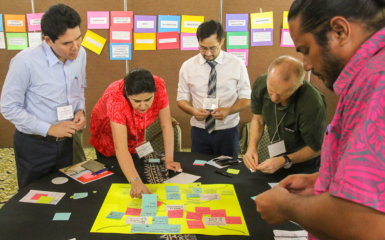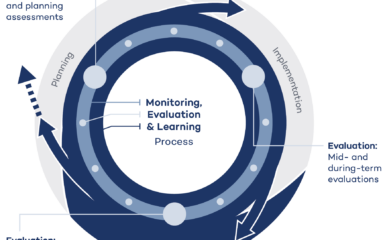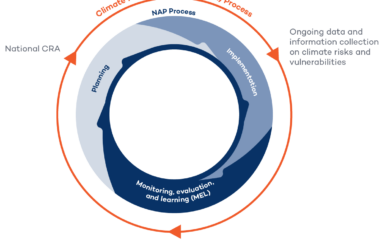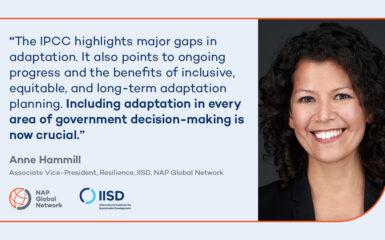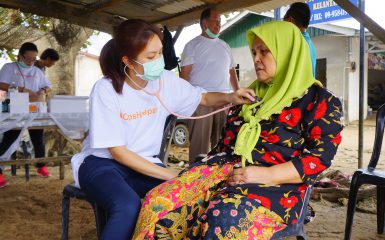Nature is essential for building resilience to climate change. Many countries’ national adaptation plans (NAPs) have focused on nature to scale up actions for ecosystems to help people adapt—for example, by protecting wetlands and restoring mangroves to help withstand the impacts of floods. Given the importance of ecosystems across global environmental agendas and the […]
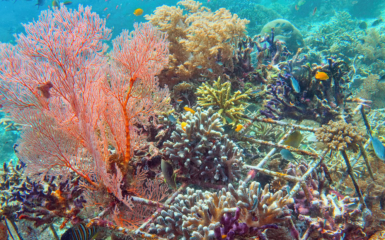
Taking Stock of Nature’s Role in National Adaptation Plans
Anika Terton, Jeffrey Qi, Nicole Jang
